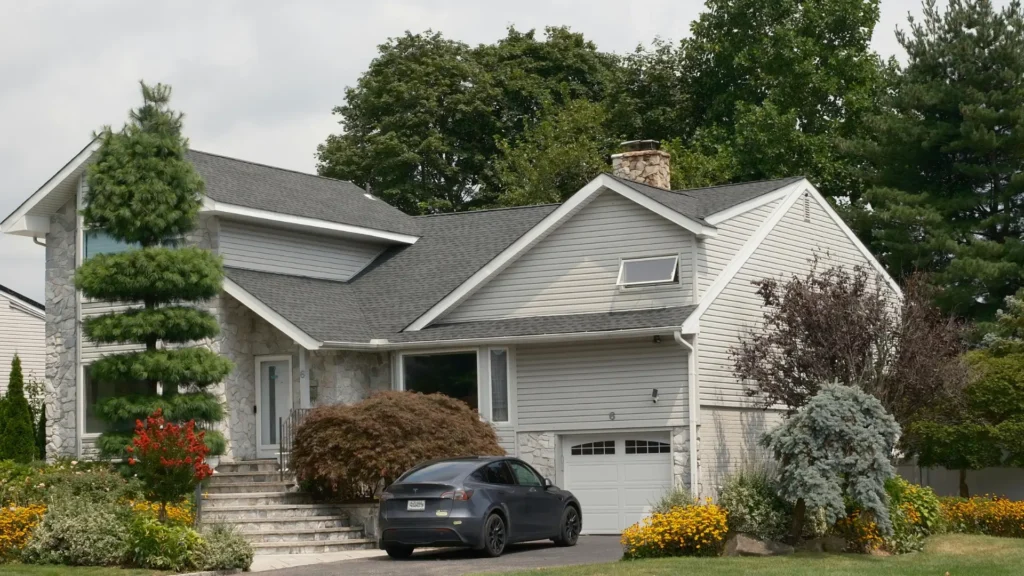Atlanta, Georgia, has a competitive housing market and a growing economy. As a result, many first-time homebuyers are flocking to the city, hoping to find affordable properties in a highly valued area. However, home prices can be challenging to overcome, which is why so many buyers must turn to mortgage loans.
Interest rates on mortgage loans determine how much it costs to borrow money. As a borrower, you will repay the principal loan amount plus interest throughout the loan term. The higher the interest rate, the more you pay to borrow money and purchase the house. Current interest rates impact the affordability of your home and its monthly payments.
Investing involves risk, which may lead to higher interest rates. However, the experts at TrueWay Mortgage can help you purchase your dream house so you can start building home equity. We can help you learn about Fannie Mae, what a 30 year fixed mortgage is, how to build home equity, and discuss payment assistance programs like Georgia Dream programs.
Why Mortgage Interest Rates Matter for Atlanta and Georgia Homebuyers
Mortgage rates are one of the driving factors in the cost of a home loan. A home loan with an interest rate of 7% will cost significantly more throughout the term than a similar home loan with an interest rate of 7%.
Mortgage rates affect the total cost of the loan and the monthly interest payment. Understanding Georgia mortgage rate trends is crucial for borrowers to know how affordable homes in Atlanta are.
Mortgage rates are also crucial when considering refinance rates. Many homeowners will consider whether they want to refinance their personal loans to enjoy refinance rates, which may be lower than their current interest rates. This is a crucial way many people save money on their mortgages.
What Are Mortgage Interest Rates?
Lenders use mortgage rates to offset the risks of lending money. If Georgia mortgage lenders simply loaned money and borrowers only paid back the principal, they would not be profitable. This would lead to immense risk if any borrowers default.
Therefore, a lender will charge interest on the principal amount to reduce risk. The riskier the loan, the higher the interest rate will be to offset the danger to the lender. This is also why refinance rates are typically lower. A borrower usually has a history of reliable repayments to help them qualify for lower refinance rates.
The monthly payment toward interest is determined by multiplying the outstanding balance by the current mortgage rate on the loan. This number is then divided by twelve because twelve payments will be made throughout the year.
How Are Mortgage Interest Rates Determined?
Today’s mortgage rates in Atlanta, Georgia, are determined by several factors. First, federal monetary policy plays a significant role in the interest rates your lender can offer. Inflation can also result in higher mortgage rates.
Each lender will have specific criteria that impact the rate they charge to individual borrowers, such as credit scores, down payments, and debt-to-income ratios. In general, the less risk a loan is, the better chance you have of accessing a lower rate. Other factors could affect your rates, such as income complexity, the property’s location, the conforming loan limit, and the lender's experience.
Whether you qualify for Georgia Dream programs or other forms of payment assistance can also impact your rate. Some programs mandate a 30 year fixed rate. Others require the interest rate to be the lowest available. However, some Georgia Dream programs have zero impact on the rate. Ask your lender if there are payment assistance programs you qualify for that can help you get a lower rate.
Average Mortgage Rates in Georgia
Average mortgage rates in Georgia will fluctuate depending on the type of loan, the loan structure, and the property's location. Across the state, the average rate for a 30-year fixed-rate mortgage is 6.125%, lower than the national average of 7.04%. However, if you choose a 15-year fixed-rate mortgage, the typical rate in Georgia is 6.17%. The Peach State generally has lower rates than many other states.
Mortgage rates are slightly higher in a competitive market like Atlanta. The city is currently a buyer’s market, which often means higher mortgage rates and fewer buyers are looking for homes.
Credit Score Impact on Mortgage Interest Rates
A strong credit score is highly beneficial for Georgia homebuyers. If you want access to the lowest Georgia mortgage rates, you need a higher credit score of at least 700. A strong credit history demonstrates your reliability in paying back debts so that lenders will see you as a less risky borrower. As a result, they will offer a more competitive interest rate.
For example, if your credit score is above 760, you could get an average mortgage rate of 7.24%. If your score is below 640, the interest rate may rise to 7.8%. However, you can continue to work on your credit score while paying off your mortgage to enjoy lower refinance rates later.
Loan-to-Value Ratio (LTV) and Its Effect on Rates
The loan-to-value ratio is calculated by dividing the principal balance by the home's current market value. A high LTV ratio is riskier for the lender, so they may raise the mortgage rates or refinance rates you qualify for. The initial LTV ratio of a property is typically based on the size of the down payment.
For example, if you buy a home in Atlanta worth $300,000 with a $40,000 down payment, the loan amount will be $260,000. Divide the loan amount by the price of the home, and the LTV ratio is about 87%. This is relatively high, so your interest rate will also be higher. However, if you put down $60,000, the LTV would be 80%, resulting in a more favorable rate.

Loan Types and Their Impact on Rates in Georgia
Georgia mortgage rates are also affected by the type of loan you are pursuing. For example, a fixed-rate loan will lock in a slightly higher rate than a comparable adjustable-rate mortgage, at least for the first few years. However, if the market changes, the rate could increase on an adjustable-rate loan after several years.
FHA, VA, and USDA loans in Georgia are some loan products that naturally have lower interest rates to encourage homeownership. These government-backed mortgages allow lenders to offer borrowers more competitive and customized rates. If you compare USDA, FHA loans, or Georgia VA loans to a conventional 30-year fixed-rate loan, the conventional product will typically have a higher rate.
Market Trends in Atlanta and Georgia
Today’s mortgage rates in Atlanta, Georgia, are higher because it is a buyer’s market. The job market and population are growing while home prices are decreasing. Financial institutions can charge slightly higher interest rates with more demand from buyers who want homes in this area.
How to Compare Mortgage Rates in Georgia?
Finding a good deal is essential if you want an affordable home. Compare customized rates from multiple lenders to find the best price for your home loan, whether a 30-year fixed-rate loan or a 15-year adjustable mortgage.
Professionals at TrueWay Mortgage understand the importance of getting a low rate. We can help you compare rates for your personal situation. Whether you’re trying to protect your assets during retirement, want low interest rates, or are interested in lower refinance rates, our agents can help you weigh the pros and cons.
Local Lenders vs. National Lenders in Georgia
Choosing a local lender to navigate Atlanta’s housing market has benefits and drawbacks. With a local lender, you will have access to expertise on the local housing market and a personalized approach. However, smaller lenders may not have a national firm's resources if you want to purchase a home across the country.
Tools for Tracking Mortgage Interest Rates in Georgia
Numerous online tools make tracking today’s mortgage interest rates in the Peach State easier. TrueWay Mortgage offers a convenient, quick form to help you determine today’s rates. It asks a few questions to ensure you get an estimate based on your situation instead of a general rate that may not apply to you.
Tips for Improving Your Credit Score in Georgia
Improving your credit score is the best way to access more favorable rates and, therefore, a more affordable Georgia mortgage. Consider paying off high-interest debts so they are removed from your credit report. Lower your credit utilization ratio by decreasing spending or raising your limit while maintaining the same level of expenditure. Make all payments on time to continue building your score.
Today’s mortgage rates involve a comprehensive look at finances. Make sure you use the best credit cards that report to companies like Equifax. Make every payment on time, even for things like medical bills. Once an item goes into collections, it leaves a negative mark on your report.

How to Lock in Low Mortgage Rates in Georgia?
Borrowers can lock in a rate, such as a 30 year fixed rate, to protect themselves from market fluctuations during their home searches. They agree with a lending firm on a specific interest rate, which will be the initial interest rate for the loan if they close on a home within the specified time. Usually, this is a 30 year fixed rate, but it can be a 15 year plan, too.
If the market is favorable, locking in a low Georgia mortgage rate early in the homebuying process could save you thousands of dollars. Many people who purchase a home shoot for a 30 year fixed rate to ensure they don’t have to deal with rising interest rates while they pay off their home.
Negotiating with Lenders for Better Rates in Atlanta
Borrowers can negotiate with lenders for better rates using several methods. You can offer a larger down payment on the loan. Have other mortgage rate offers with you when speaking to a loan officer. Consider using discount points or paying a lump sum upfront to decrease the rate and save money in the long run.
Timing Your Mortgage Application in Georgia
If you want to join the ranks of Georgia homeowners, you should understand how seasonal fluctuations may affect your interest rate. Try to time your financing application when federal interest rates drop or during the slow season in the winter. These seasonal trends can help you lock in lower rates on a primary residence loan.

Fixed vs. Adjustable-Rate Mortgages in Georgia
Fixed and adjustable-rate mortgages can benefit certain types of buyers. If you plan to live in the home for a long time, a 30-year fixed-rate mortgage makes more sense. However, if you move often or plan to sell the house after a few years, an adjustable-rate loan can give you several years of lower interest payments.
Low-income home buyers may qualify for payment assistance programs that simultaneously offer a fixed interest rate. Buyers must meet several criteria to qualify. There are income guidelines, and properties must be within purchase price limits. Payment assistance programs like the Georgia Dream programs can help buyers find a financial solution to meet their goals.
There are various types of Georgia Dream programs available for payment assistance. One Georgia Dream program can help with closing costs and lender fees. Another is specially designed for veterans. Ask your lender about the Georgia Dream program to determine if you qualify.
How Mortgage Points Impact Rates in Georgia
As a borrower, you could obtain discount points with a lender. You could use these points to negotiate for a lower interest rate, saving you a lot of money throughout the loan term. Discount points are typically acquired by paying upfront fees.
Navigating Mortgage Interest Rates as an Atlanta Homebuyer
Mortgage rates can be confusing when you pursue a real estate purchase transaction. It is essential to understand how these rates impact the total cost of a home loan and the monthly premiums. Speaking with a qualified lender like TrueWay Mortgage can help you navigate these complexities and find the most affordable rates, whether pursuing USDA loans, Georgia FHA mortgages, or 30-year fixed-rate products.
Call our team today at 404-962-0032 for a free consultation about the mortgage process in Atlanta, Georgia.





